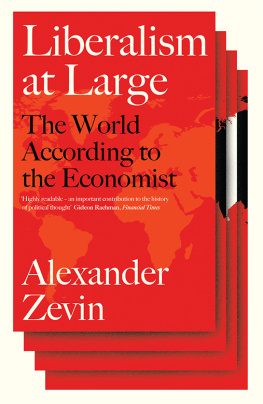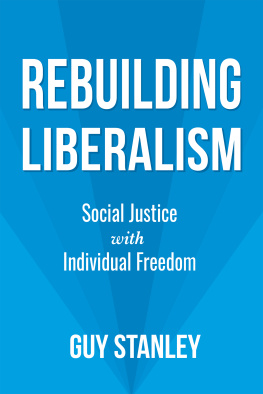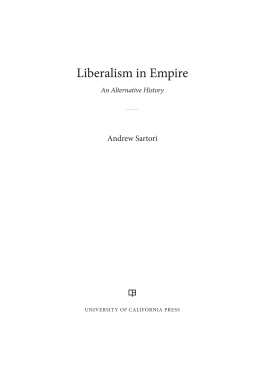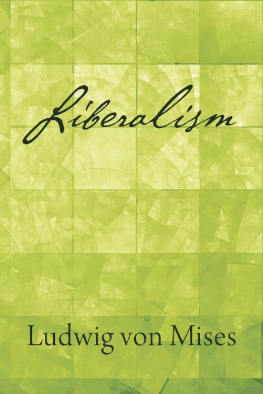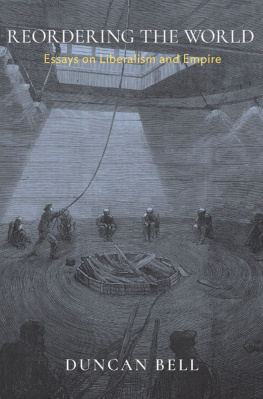Contents
This eBook is licensed to Karim Mamdani, karim.mamdani@gmail.com on 12/02/2019
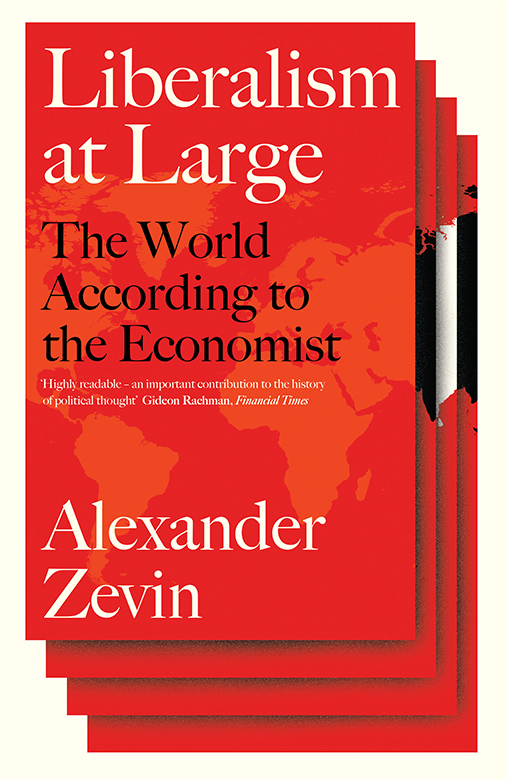
Liberalism at Large
This eBook is licensed to Karim Mamdani, karim.mamdani@gmail.com on 12/02/2019
L iberalism at Larg e
The World according
to the Economist
Alexander Zevin

This eBook is licensed to Karim Mamdani, karim.mamdani@gmail.com on 12/02/2019
First published by Verso 2019
Alexander Zevin 2019
All rights reserved
The moral rights of the author have been asserted
1 3 5 7 9 10 8 6 4 2
Verso
UK: 6 Meard Street, London W1F 0EG
US: 20 Jay Street, Suite 1010, Brooklyn, NY 11201
versobooks.com
Verso is the imprint of New Left Books
ISBN-13: 978-1-78168-624-9
ISBN-13: 978-1-78168-626-3 (UK EBK)
ISBN-13: 978-1-78168-625-6 (US EBK)
British Library Cataloguing in Publication Data
A catalogue record for this book is available from the British Library
Library of Congress Cataloging-in-Publication Data
A catalog record for this book is available from the Library of Congress
Typeset in Sabon by MJ & N Gavan, Truro, Cornwall
Printed and bound by CPI Group (UK) Ltd, Croydon CR0 4YY
This eBook is licensed to Karim Mamdani, karim.mamdani@gmail.com on 12/02/2019
Contents
This eBook is licensed to Karim Mamdani, karim.mamdani@gmail.com on 12/02/2019
The Economist and the Making of Modern Liberalism
T he Economist is not like other magazines; it does not even call itself one. No newspaper as it styles itself has been anywhere near as successful in the internet age, nor able to defy digital gravity for so long. As print media shed audiences and advertisers, foreign bureaus and paid journalists, the Economist added them. How had a magazine with a sleep-inducing title and sometimes esoteric content, asked National Public Radio in 2006, posted readership gains of 13 per cent the year before, comparable only to celebrity tabloids? But what was the secret, and why try to steal it from a paper a century older than any of them, edited from London continuously since 1843?
For some, it was the clever covers, wry humour, strong editorial line. For the New York Times, the answer was simpler: slick marketing. Red-on-white banners tugged at the insecurities of striving readers, making the Economist a status symbol for the would-be well-heeled. Its ads said everything. I never read The Economist. Management Trainee. Aged 42, ran one ad from 1988. Another quipped, Its lonely at the top; but at least theres
The Economist does not walk on water, and in 2014 paid sales dipped for the first time in at least fifteen years. But in response, the Economist did what few other magazines could: it raised subscription prices 20 per cent to $180 for the electronic edition alone, making it the most expensive weekly in the US, with operating profits to match. At 54 million in 2017, these were still 60 per cent higher than they had been a decade before, despite the general collapse of ad revenues in the intervening years. Before her, George H. W. Bush could be seen with a copy pressed to his chest, striding up the White House lawn.
Not all readers are this powerful, but many have plans to be. In Anthony Powells novel A Dance to the Music of Time, Sunny Farebrother stockbroker, entrepreneur, amateur geo-statesmen serves to satirize the type, retiring from dinner at the manor house he is visiting to scan the Economist. He has so annoyed the other Buyers usually do more than walk around with their copies, in other words: whether he or she is the leader of the free world, a business magnate, college freshman or, apparently, Sarah Palin and Steve Bannon they also read it.
Investigative journalism is not a strength of the paper. What readers expect from the Economist are sharp didactic summaries and surprising numbers, which it provides on a grand scale. In a single issue, one may flit past e-commerce in China, mortgage fallout in Las Vegas, peace negotiations in the Middle East, the search for life on Mars, a new art museum in Qatar, and an obituary for an obscure South African explorer eaten by a crocodile. The first paper ever to compile and publish wholesale prices, it still devotes its back pages to data sets that change like shifting prisms onto the world economy: greenhouse gas emissions, growth forecasts, global remittances, the cost of a Big Mac. Treatment of any single issue is limited, outside of special reports, and articles can descend into parody as if the writer started out knowing that three steps must be taken immediately then tried to think what those steps should be.
Yet this strong institutional character, which sees an act of creative destruction in death, is also what makes it unique, preserved as it is by an equally unusual ownership structure designed to let the editor run the paper as though it belonged to him. In place since 1928, this structure gives the editor power over policy, salaries and employment; and puts between him or her and the board of directors four trustees, who sign off on share transfers and the appointment of chairmen and editors. In 2016, when Pearson sold its half of the Economist Group for 469 million to existing shareholders, this charter came into play, with voting rights capped at 20 per cent for the largest of them. Insulated from business pressure, editors have swelled the business. In 176 years,
Anonymity was always designed to amplify the voice of the Economist. Today, so do the covers, with Photoshop acting as a slingshot for pop-cultural lse-majest: Kim Jong Il blasts into space as Rocket Man; Angela Merkel appears as Kurtz, groaning in horror at Greeks in Acropolis Now; Hu Jintao and Barack Obama are the cowboy lovers from Brokeback Mountain. The more hated the figure, the more lurid the caricature: Vladimir Putin has been a prohibition-era mobster with a gas pump for a gun, a chess piece, a spider, an ice cube, a shirtless tank driver. Faced with this sort of barrage, Silvio Berlusconi sued. Hero worship is less common, if not unknown. Freedom Fighter, above a halo of hair, was its memorial to a monochrome Margaret Thatcher.
Both covers and articles are belligerent but conversant with politicians and governments; whole countries are blamed or praised with breezy self-assurance. But this is not mere posturing. When a new leader appears on the global stage, especially one unknown to capital markets, or from a developing country that needs to tap them, he or she will make a pilgrimage to the offices of the Economist. Even Hugo Chvez paid homage in 2001, trying to chat up the receptionists, two young black women, as if they were Venezuelan voters. Luiz Incio da Silva got a warmer welcome in 2006 for his plans to promote market reforms in Brazil, as well as asides about his diet. Michelle Bachelet had her tte--tte in 2014 over herb tea in the Moneda palace in Santiago, assuring the Economist she would never put equality before growth. In the US, Barack Obama was the first president to write a signed editorial for it in 2016, before departing the White House.
How do you write like the Economist?, a nervous new recruit, trying to compose his first leader for it, once asked. Simple, a senior editor replied. Pretend you are God.

